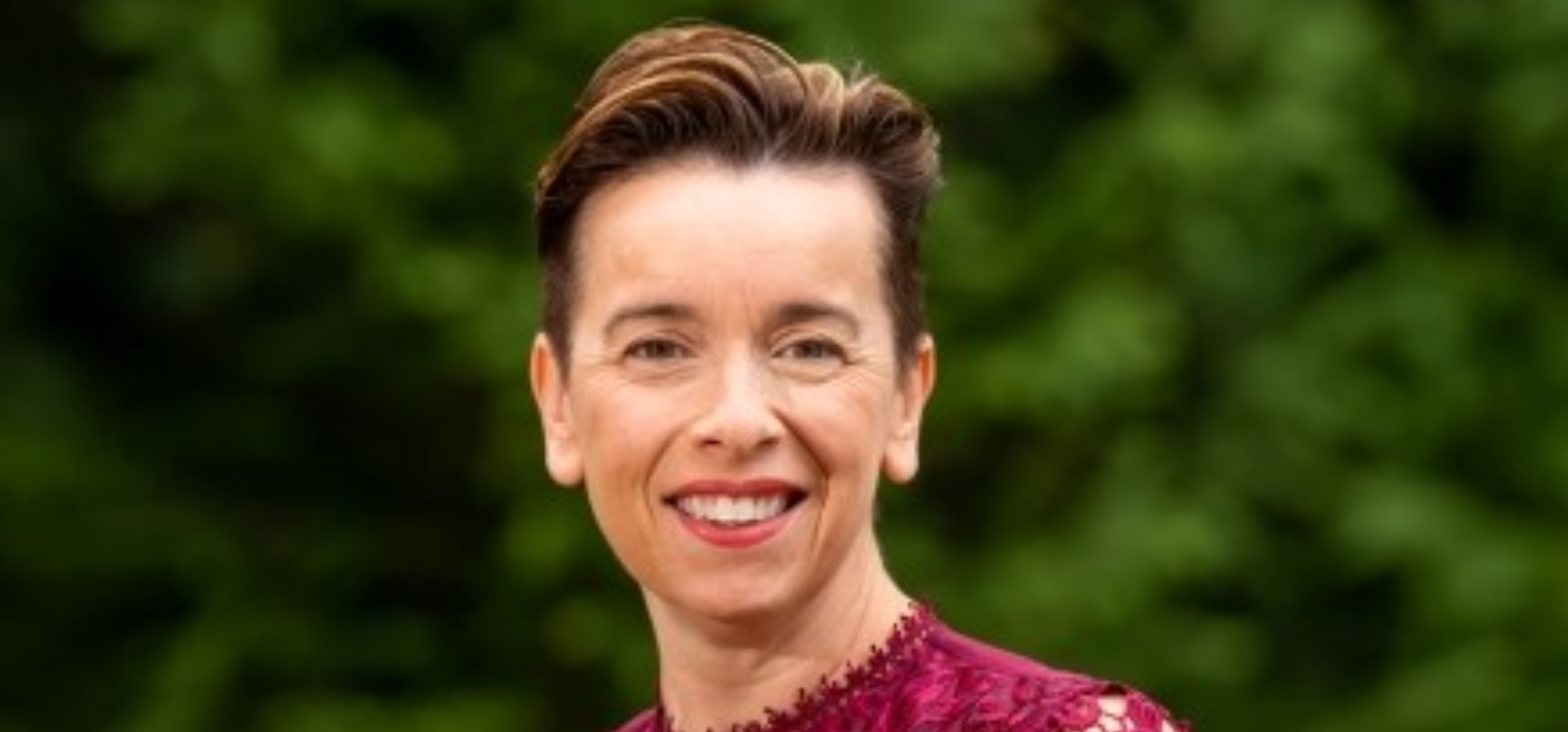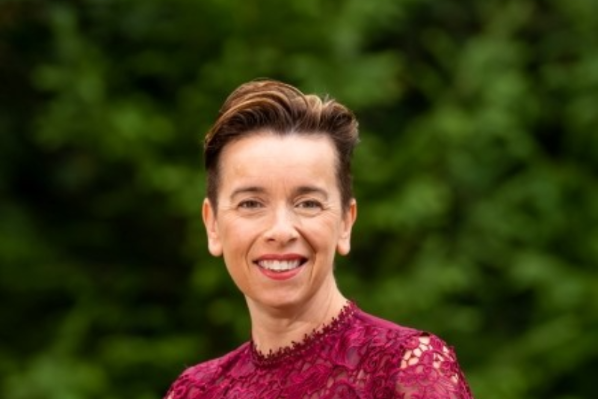Natalie Le Seelleur: Embedding Sustainability in the Curriculum
Natalie Le Seelleur is driving the integration of sustainability into education through a comprehensive strategy aligned with Queen's goals. Their work helps make sustainability meaningful and accessible to staff and students.

At Queen’s, Natalie Le Seelleur is focused on embedding sustainability into teaching and learning, aligning education with the Sustainable Development Goals and the university’s Strategy 2030. She is currently leading an institution-wide Education for Sustainable Development strategy that integrates curriculum, staff training, student engagement, and campus initiatives to make sustainability a shared and visible priority. Her work aims to inspire staff and students to see sustainability as a real, collective responsibility.
My role focuses on embedding sustainability into teaching and learning across the university. This includes working with academic and professional services staff to help them identify how their modules, programmes, and activities connect to sustainability and the Sustainable Development Goals (SDGs). I support the development of Education for Sustainable Development (ESD) strategies and learning outcomes that align with Queen’s Strategy 2030, our Net Zero Plan, and the SDG Accord.
I am currently leading the development of an institution-wide Education for Sustainable Development (ESD) strategy, structured around four interconnected strands.
- Curriculum systems and integration: focusing on embedding sustainability into academic processes and infrastructure. This includes aligning new module forms with SDG-related requirements, developing staff guidance, and working with digital systems colleagues to build a central IT solution to capture and analyse SDG data. The aim is to make sustainability more visible to students, easier for staff to embed, and more consistent across the university.
- ESD for students: includes curriculum mapping, support for integrating sustainability into different disciplines, and the development of a sustainability literacy assessment aligned with GreenComp. I am currently exploring different approaches to make sure we choose something that fits Queen’s and supports students meaningfully.
- ESD for staff: involves creating a training framework that offers clear entry points and progression routes. This includes a new SEDA programme called Embedding Sustainability in Higher Education, a Community of Practice to share ideas and build confidence, and short-form learning to help more people get started.
- Living Labs: Connecting what happens in classrooms and research with how the campus operates. We are developing a proposal process, visual dashboards, and practical ways for staff and students to contribute ideas and lead projects that support Queen’s sustainability goals.
Each of these strands is about building momentum and making sustainability part of how we do things at Queen’s. I hope this work helps more staff and students see where they fit in, and feel excited about getting involved. It should not feel like an add-on. It should feel like something real, something we all contribute to, and something we can be proud of.
What does sustainability mean to you personally, and how do you integrate it into your daily work or lifestyle?
I see sustainability as both a professional focus and a personal commitment. At its core, it is about responsibility. It means recognising the impact of our choices and being ready for the changes ahead. In my work, that means helping to shape the systems and structures that allow sustainability to be embedded across the university in a meaningful and lasting way.
Sustainability is not just environmental. It is about fairness, connection, and consequence. How we live, how we learn, and how we treat each other. There cannot be one set of rules for ‘us’ and another for ‘them,’ whether we are talking about global inequality, organisational culture, or everyday decisions. We are accountable not only for what we do, but for the systems we continue to accept or challenge.
In my day-to-day life, I try to reuse, repair, or rethink what I do, whether that is how I travel, what I buy, or how I connect with the community. I either cycle or take the train for my daily commute, and I absolutely love my e-bike! You notice so much more. My route runs along the river, and it is genuinely beautiful in the mornings. Baby ducklings will never fail to make you smile and everyone says hello. I borrow tools from the Belfast Tool Library, borrow eBooks from the library, and try to make choices that feel thoughtful rather than automatic.
For me, sustainability is not about getting everything right. It is about paying attention, doing what you can, and staying open to small changes that add up.
What aspect of your work do you enjoy the most?
I loved leading the ESD curriculum mapping and building the initial frameworks. It was a huge piece of work and gave us, for the first time, a proper baseline of what is happening across Queen’s. It also gave shape to the wider strategy, showing where we are, where the gaps are, and what we might do next.
Although I have only been in post for seven months, that early work has already opened up so many possibilities. What excites me now is what happens next. We have a plan, we have data, and we are starting to build momentum. The conversations are changing. Staff are making new connections and beginning to see how sustainability links to their subject, their students, and their own practice. That shift from awareness to action is the part I am most looking forward to.
What is one thing you find that people often misunderstand about sustainability?
People often think sustainability is just about the environment, climate change, plastic waste, or wildfires in faraway places. But look closer to home. Flooded homes and businesses in Downpatrick and Newry. Wildfires in the Mournes. Lough Neagh’s water supply poisoned. Unpredictable weather already affecting our crops and food systems. These are not just environmental issues. They impact our health, economy, housing, and everyday lives.
And they are not problems that one field or profession can fix alone. The challenges we face are deeply connected. Preparing for them means working across boundaries, bringing together engineers, health professionals, journalists, educators, policy makers, and more.
That is why Education for Sustainable Development matters. It helps students and staff see the links, build the skills to collaborate across disciplines, and prepare for the kind of future we are already living in.
What small changes can staff, students, and the public make to support sustainability?
Start by creating just a little bit of friction in your habits. Delete saved apps and passwords from shopping sites. If buying something takes a few extra minutes, you give yourself space to ask, “Do I really need this, or just want it?” Could you borrow it from a friend or the swap shop instead?
Try making Mondays and Wednesdays your change-up days. Go vegetarian, bring a packed lunch, fill up at the hydration stations, and swap the car for a bike, walk, bus, or train. Even just two days a week can help cut emissions, reduce waste, and save money. You will probably feel better too.
Small changes like these may not seem like much, but they build momentum. They help us rethink habits, reduce overconsumption, and remind us that what we do matters. I loved The Year of Less by Cait Flanders. It’s a thoughtful and honest look at how small choices can lead to big shifts. (It is available as a free audiobook from your local library.) Not every action will suit everyone, but we all have something we can do. And when we start making those changes together, it starts to add up.

Media
Media enquiries to Lia McKenzie on email: lia.mckenzie@qub.ac.uk